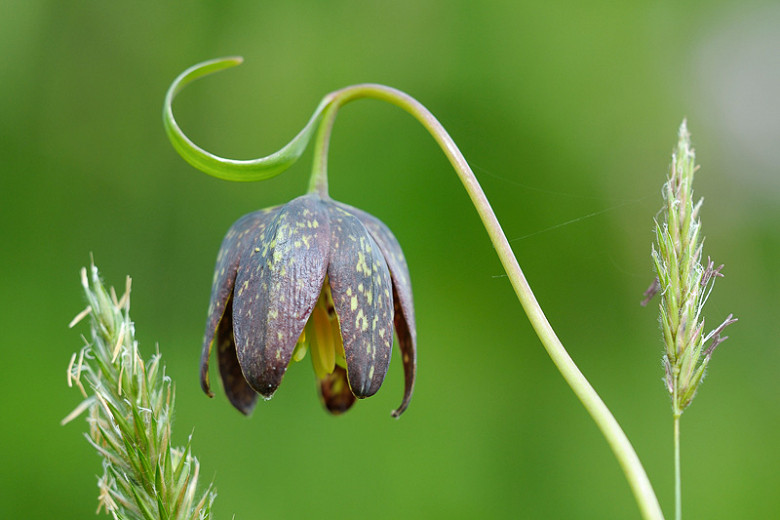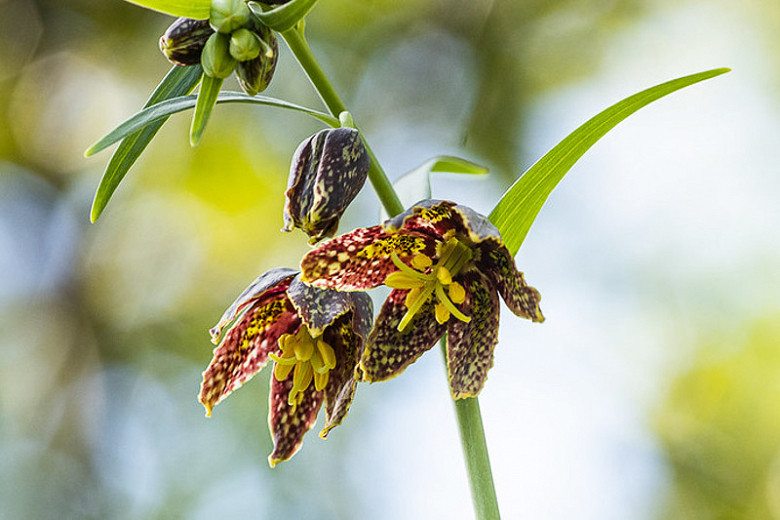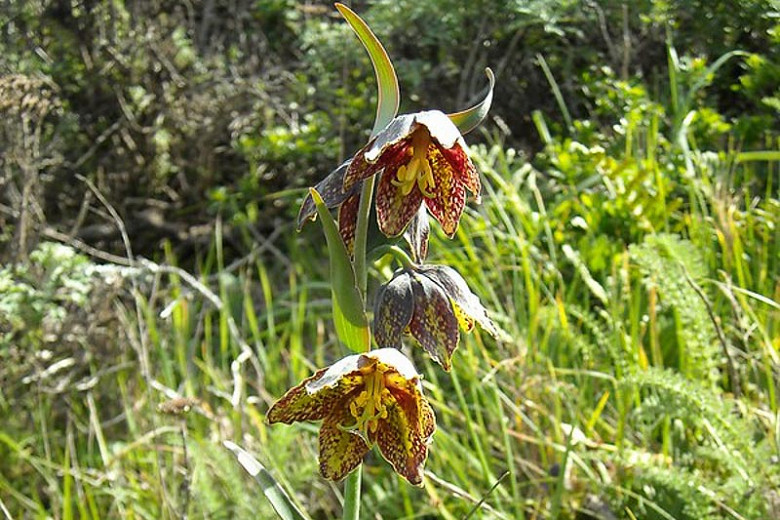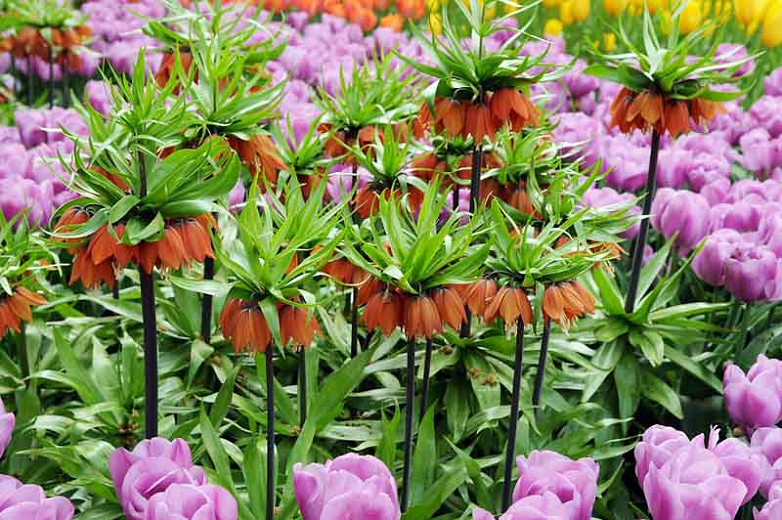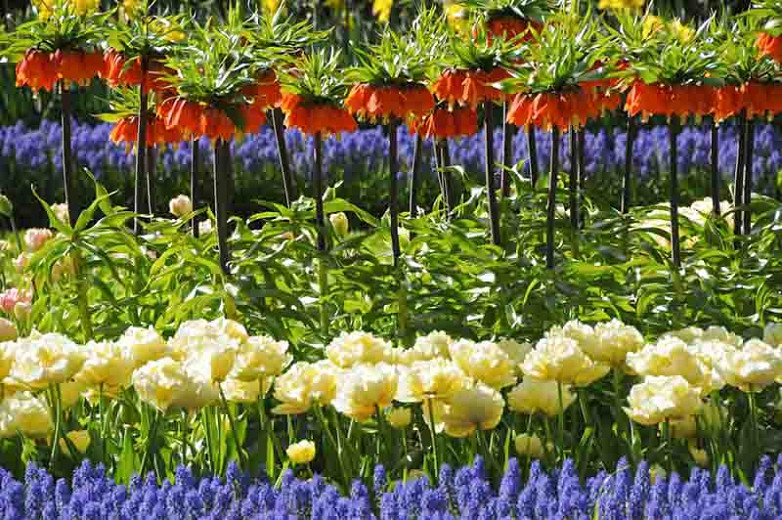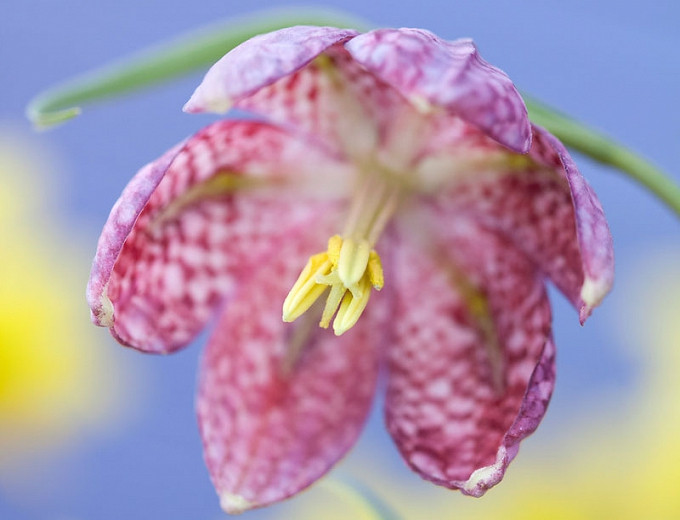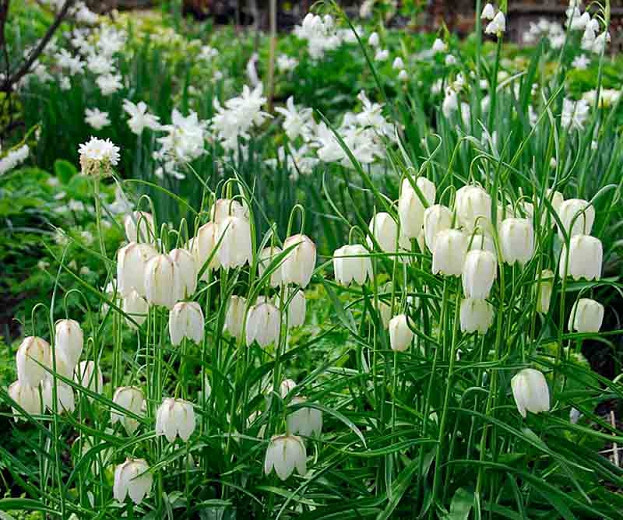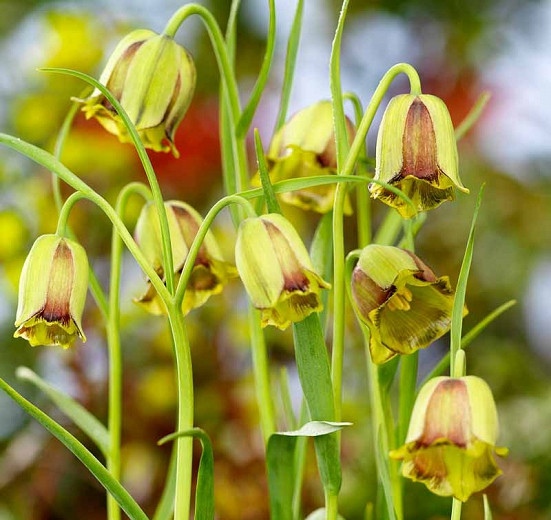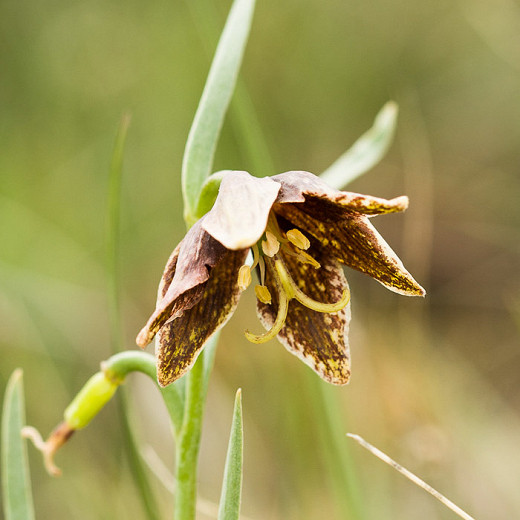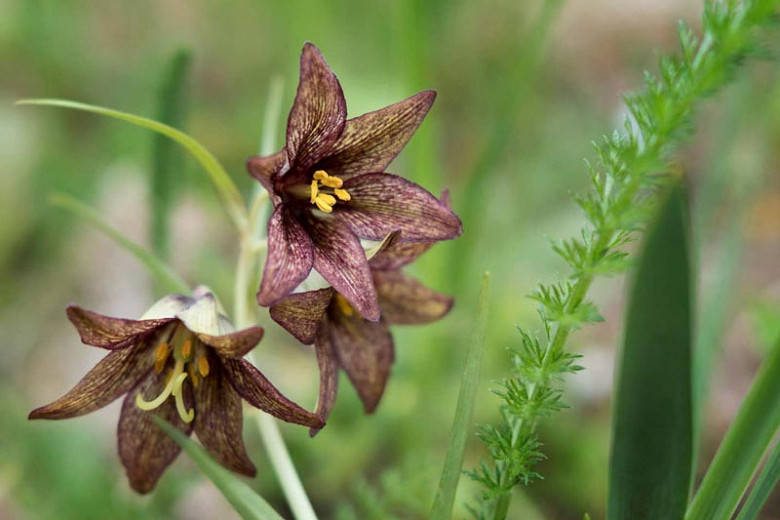Fritillaria affinis (Chocolate Lily)
Native to Western North America, Fritillaria affinis (Chocolate Lily) is a charming bulbous perennial with slender, erect stems bearing 1-3 whorls of lance-shaped leaves, 2-6 in. long (5-15 cm). In spring to early summer, depending on the environment, nodding, bowl-shaped, brownish-purple flowers spotted with green and yellow can be admired. They are borne singly or in clusters of 2-5 in the upper axils and stem tips. The blossoms give way to broadly winged capsules. Chocolate Lily is found in open dry woods and meadows from southern coastal British Columbia eastward to the Okanagan in eastern Washington and south to California. In California, chocolate lily occurs commonly in oak or pine scrub and grasslands below 1800 m in the Klamath Ranges, north Coast Ranges, Cascade, northern Sierra Nevada Foothills, and San Francisco Bay Area. The bulbs used to be steamed in pits and eaten. They are said to be tender and delicate, resembling rice but slightly bitter. Chocolate Lily is desirable for a lightly shaded slope, and it responds well when suitable conditions are provided.
- Grows up to 4-48 in. tall (10-120 cm). Will naturalized if its growing requirements are met.
- Best in sun or partial shade in moderately moist to dry, well-drained soils with moderate summer watering. This plant is intolerant of frequent watering. Dry summer dormancy and good drainage are important. This plant takes sun in coastal regions but prefers light shade inland.
- Propagate from seed, sown in pots in a cold frame in autumn. Divide offsets in late summer. Most bulbs take 3-5 years to reach the mature flowering stage. When seed capsules form, they begin to split when they are ripe. Collect immediately, as seeds may be shed quickly.
- Native to Western North America – in California, Klamath Ranges, the north coast ranges, Cascade Ranges, northern Sierra Nevada foothills, and the San Francisco Bay Area, north to British Columbia and Idaho.
Requirements
| Hardiness | 5 – 9 |
|---|---|
| Climate Zones | 5, 6, 7, 14, 15, 16, 17, 18 |
| Plant Type | Bulbs, Perennials |
| Plant Family | Fritillaria |
| Exposure | Full Sun, Partial Sun |
| Season of Interest | Spring (Early,Mid,Late)Summer (Early) |
| Height | 4" – 4' (10cm – 120cm) |
| Spread | 4" – 6" (10cm – 15cm) |
| Spacing | 3″ (7cm) |
| Depth | 2" – 3" (5cm – 7cm) |
| Water Needs | Low |
| Maintenance | Low |
| Soil Type | Loam, Sand |
| Soil pH | Acid, Alkaline, Neutral |
| Soil Drainage | Well-Drained |
| Characteristics | Showy |
| Native Plants | United States, California, Pacific Northwest, Idaho, Oregon, Washington |
| Garden Uses | Banks and Slopes, Beds and Borders |
| Garden Styles | Prairie and Meadow |
